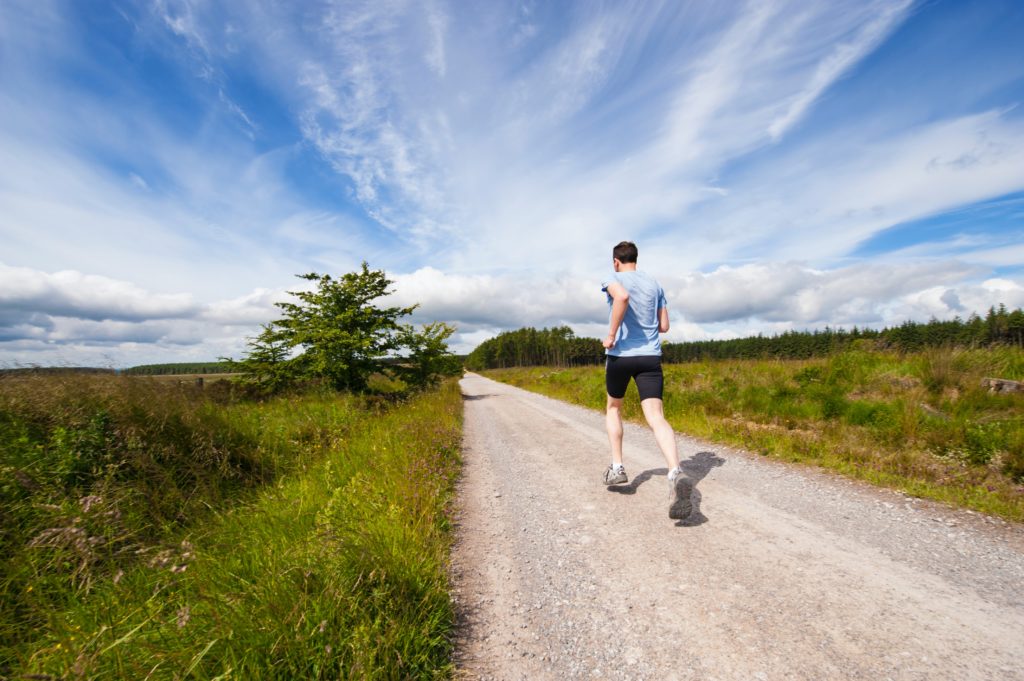
82 million adults spend an estimated 28 billion dollars on gym memberships each year! WHY? There are many reasons we exercise. Some people exercise to prevent illness such as cardiovascular disease or osteoporosis. Others exercise for mental health and as a stress release; others do it to improve strength, flexibility, and endurance to prepare for a sport. However, the number one reason people exercise is TO LOOSE WEIGHT!
When it comes to losing weight, patients have asked me a wide variety of questions over the years. However, certain questions are consistent. “What exercise is the best to burn calories?” “Even though I exercise 2-3 times per week, why can’t I lose weight?” “What is BMR?” “If I eat a Snickers bar, how much exercise do I need to do to burn it off?” “Are there any tools that I can use to help me track my calories and exercise output?”
Have you ever heard people say that they never felt better or burned more calories as they did when they ran? Well, they may be right! The following numbers are based on the average male weighing 150 pounds: running 6 miles per hour will burn 700+ calories (11-12 calories per minute); vigorously skipping with jump rope or fast cycling will do the same; vigorous walking at 4 miles per hour and moderate biking will burn 600+ calories (10 calories per minute). The 400-500 calorie club includes the following activities: slow jogging, swimming, football, basketball, baseball, tennis, skiing, and moderate walking (3.5 miles per hour). Light gardening burns more calories than golfing using a cart (250 vs. 180).
How many times have you heard people say, “It is hard for me to lose weight because I have a slow metabolism?” What does that mean? To explain this in detail you first must understand BMR. BMR is basic metabolic rate. It is the number of calories that your body requires to operate basic body functions that you don actively control, such as continuing to breathe, and keep your cells and organs working each day. The BMR is influenced by age, height, gender, body fat, and fitness level. BMR is inherently different (high or low) in each individual. While you can’t change your gender or height, you can influence some things to influence your BMR and burn more calories at rest. One, exercise for longer durations, with greater intensity and more frequently. Two, lower your body fat by eating less calories, especially fat and carbohydrates in your diet. Simply, eat less calories than you burn! Three, improve you muscle/fat ratio by weight training.
BMI: < 18.5 = Underweight
BMI: 18.5 – 24.5 = Normal Weight
BMI: 25. - 29.9 = Overweight
BMI: >30. = Obestiy
For example, I am a 57 year old male, weighing 150 pounds at 5 feet 8 inches tall with a BMI of 22.8
*Calculate you BMI by entering you gender, height and weight and find how many calories per food item at:
There are several tools available for free online to help with tracking calories and exercise visit Prevention Magazine at: www.myfooddiary.com or try the App “Lose It”
BMI Calculator – to calculate your BMI
Calorie Burner – to calculate how many calories are burned with various activities
Daily Calorie Calculator – Find how many calories are in specific foods and what you need to do to loose or gain weight.
So remember, the number one reason we exercise is TO LOSE WEIGHT! But depending on exercise alone to lose weight is an exercise in futility. Losing weight is an intelligent and consistent combination of a balanced diet with portion control, proper nutrition, adequate exercise and activity grounded in lifestyle changes.

Read Dr. Mackarey’s Health & Exercise Forum – every Monday
This article is not intended as a substitute for medical treatment. If you have questions related to your medical condition, please contact your family physician. For further inquires related to this topic email: drpmackarey@msn.com
Paul J. Mackarey PT, DHSc, OCS is a Doctor in Health Sciences specializing in orthopaedic and sports physical therapy. Dr. Mackarey is in private practice and is an associate professor of clinical medicine at GCSOM.